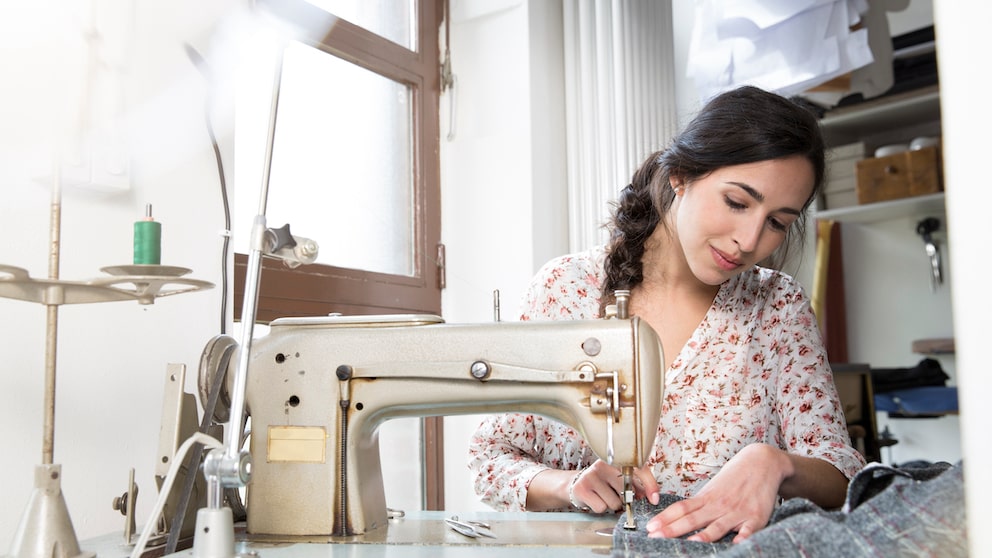October 13, 2024, 2:45 pm | Read time: 3 minutes
Whether it’s shortening a pair of trousers or creative embroidery for a cushion cover, sewing is all the rage. But what should a sewing machine be able to do, and what else should you look out for when buying one?
Buying a sewing machine is not like buying a T-shirt! Sometimes you have to pay several hundred euros. Therefore, the purchase should be well thought out and, above all, fit in with what you plan to do in the future. Is it for occasional small jobs or more elaborate sewing work?
Overview
Beginner or advanced?
Simple machines with basic functions are often sufficient for beginners. Advanced users may need special stitches, more automation, or a computerized sewing machine. You should therefore check beforehand which functions are important to you.
Whether jeans, silk, or knits: If you want to process different fabrics with your sewing machine, you should look for a variable, adjustable thread tension when buying. Ideally, the machine should also come with different, fabric-specific needles and offer sufficient variation in stitch types, width, and length.
Do you mainly want to sew clothing, home textiles, or accessories? Some machines are better suited to thicker materials (e.g., leather), while others are designed more for fine fabrics such as silk.
What should my sewing machine be able to do?
Some features are generally recommended by experts. These include a thread cutter, reverse stitch, and clearly marked threading. On the other hand, an automatic threading aid is not absolutely necessary. A zipper foot is also helpful, ideally in two versions: one seam-covered and one not seam-covered.
It is also important to ensure that the reverse button is easily accessible. The presser foot and needle should be easy to change, and the needle and thread should be clearly visible during work. Accordingly, attention should also be paid to the lighting when buying.

The Best Pistachio Perfumes for Every Budget

Lola Weippert: “I Am Afraid When I Leave My house”

Hyaluronic Acid Against Wrinkles? Application, Effect, Risks
Which sewing machine is right for me?
There are different types of machines for different requirements. For example, free-arm sewing machines are not built into the table; the lower part of the machine is free. This can be an advantage. Round cuffs and trouser legs can be sewn over and finished without any problems.
Computerized sewing machines perform some tasks – decorative stitches or making a buttonhole – automatically, and certain stitches are already programmed. Overlock machines are more of a supplement and are suitable for frequent sewers. The special feature of this type of machine is that the bobbin thread closes the upper thread, something that not many machines can do. And for those who like to embellish textiles with embroidery, it is worth buying an embroidery machine.
Do you want or need to transport your sewing machine often? Then, the weight and size also play an important role. The volume could also influence your purchase decision. If you only want to use a sewing machine occasionally, the noise level will be of secondary importance. If the machine will be used regularly, then it is best to pay attention to this when buying.

